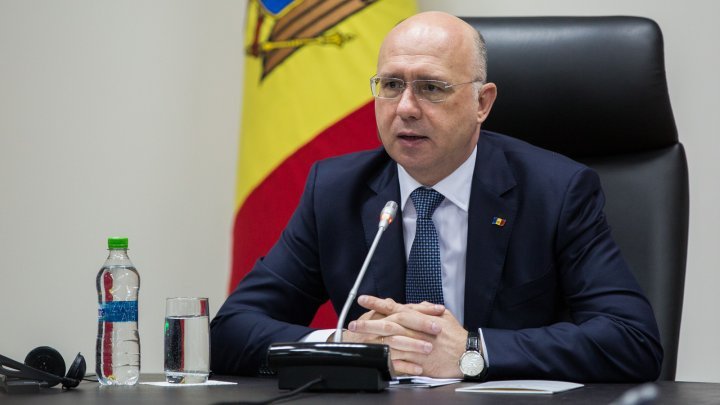Economic Council's activity over past year to improve business environment examined today at meeting chaired by Prime Minister Pavel Filip
 foto: publika.md
foto: publika.md
The actions of the Economic Council over the past year to improve the business environment and the priorities for the current year were examined today at a meeting chaired by Prime Minister Pavel Filip.
The Prime Minister stressed the role of the Council in solving the problems faced by the business environment: "It is a platform where all the points of view are taken into account and the common denominator is found." Pavel Filip thanked the representatives of the business community for their active involvement in improving the framework governing the business environment, while stressing the valuable contribution of the development partners and the interest shown by the civil society.
Among the reforms carried out in the previous year with EC support and expertise include the reform of institutions with control functions, the simplification of reporting procedures, the reduction of permissive acts, the implementation of the One Stop Shop concept and the improvement of the Labor Code.
The willingness of entrepreneurs to join the Council speaks of the effectiveness of this platform. In 2017, the number of members of the platform increased from 59 to 71. Also, during the last year, three new working groups were set up to improve the position of the Republic of Moldova in the international economic rankings, to develop the labor market and to reduce informal employment and the phenomenon of "salaries in the plias".
The development partners supporting the work of the EC Secretariat have appreciated the Council's actions, stating that the results obtained are also due to the constant support of the Executive. "The success of the Economic Council is ensured by the government's commitment to engage in the development of state policies and the private sector," said World Bank Country Manager Ana Akhalkatsi. At the same time, the external partners expressed their openness to further support the work of the Economic Council, for maintaining an effective dialogue between the authorities and the business environment.
Among the objectives of the Economic Council for the current year include the reform of the construction sector, the amendment of legislation on the sanctioning system, the facilitation of obtaining work and residence permits for foreign investors. Also, increased attention will be paid to combating informal employment, facilitating export procedures, and strengthening relations between economic operators and local authorities.
The Prime Minister stressed the role of the Council in solving the problems faced by the business environment: "It is a platform where all the points of view are taken into account and the common denominator is found." Pavel Filip thanked the representatives of the business community for their active involvement in improving the framework governing the business environment, while stressing the valuable contribution of the development partners and the interest shown by the civil society.
Among the reforms carried out in the previous year with EC support and expertise include the reform of institutions with control functions, the simplification of reporting procedures, the reduction of permissive acts, the implementation of the One Stop Shop concept and the improvement of the Labor Code.
The willingness of entrepreneurs to join the Council speaks of the effectiveness of this platform. In 2017, the number of members of the platform increased from 59 to 71. Also, during the last year, three new working groups were set up to improve the position of the Republic of Moldova in the international economic rankings, to develop the labor market and to reduce informal employment and the phenomenon of "salaries in the plias".
The development partners supporting the work of the EC Secretariat have appreciated the Council's actions, stating that the results obtained are also due to the constant support of the Executive. "The success of the Economic Council is ensured by the government's commitment to engage in the development of state policies and the private sector," said World Bank Country Manager Ana Akhalkatsi. At the same time, the external partners expressed their openness to further support the work of the Economic Council, for maintaining an effective dialogue between the authorities and the business environment.
Among the objectives of the Economic Council for the current year include the reform of the construction sector, the amendment of legislation on the sanctioning system, the facilitation of obtaining work and residence permits for foreign investors. Also, increased attention will be paid to combating informal employment, facilitating export procedures, and strengthening relations between economic operators and local authorities.